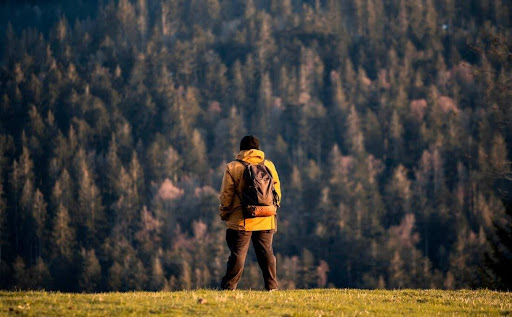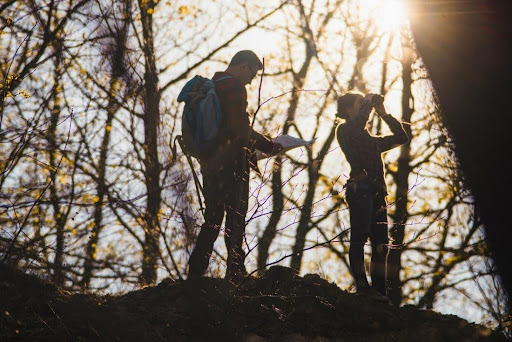To sign up for our daily email newsletter, CLICK HERE
The adrenaline is pumping, but when the chasing starts, you look for your tool, and it is stuck somewhere at the bottom of your bag, ruining your hunt.
This familiar feeling of frustration starts to rise like the sun at dawn. So, disorganized gear turns a perfect hunting moment into a mess. But it doesn’t have to be that way.
With packing smart and doing a good job at keeping your gear well organized, you will know exactly the location of all your items. This way, you will be able to enjoy the thrill of hunting with no issues.
Here is a guide to help you pack and organize your hunting gear smartly so you can stay focused on hunting.
1. Make a Checklist for Essentials
There are several aspects of hunting in the field that require the basic gear, or bows and arrows, to be checked and confirmed. Spend several minutes thinking of an item checklist. This list will reduce the probability of leaving important items behind.
Moreover, often, what may be required depends on the hunt. For instance, if you are going turkey hunting, ensure you have all the turkey hunting gear, such as decoys, calls and camo clothing.
Depending on the terrain you are going hunting, you should organize your gear by use. It will help you work efficiently and effectively to ensure that you have all that you need for hunting.
Your hunting license and permits should also be stored in a secure but easily retrievable area. That being said, your only or primary weapon, whether rifle/shotgun or bow, along with compatible ammo, is a requirement. You should also not leave out oil and patches to recondition your stuff after use.
2. Use a Proper Hunting Bag

The kind of hunting adventure you are undertaking counts a lot when selecting the bag.
For the short-day hunt, a small, lightweight pack or even a tactical sling pack should suffice for carrying just the minimum. However, if you are going out for a day or half-day hunt, you just might get by with a casual backpack.
On the other hand, for a multi-day hunt, you need a sturdier and more spacious hunting bag with multiple pockets, hydration systems, rifle scabbards or even space for a sleeping bag.
Also, the terrain dictates that a heavy load becomes cumbersome when covering long distances on foot.
So, when selecting your handbag, it is important to consider your tolerance limit for the amount of luggage you can carry.
Consequently, consider comfort when choosing a bag. Look for one with thick-padded straps, well-crafted waist belts, and adequate ventilation for your gear.
3. Categorize your Hunting Gears
It is necessary to categorize your stuff so that when the need arises, you do not have to rummage through your pack.
- Beverages and Eatables: Hydration is important, so bottles or your bag’s hydration feature should be readily available. Your snacks such as trail mix, jerky or energy bars should go into a pouch so that you can easily access it should you require energy.
- Tools and Accessories: Carry your hunting knife and multitool in cases. When it comes to delicate items like binoculars and rangefinders, it is efficient to pack them in padded cases to prevent further harm. Fire starters should be packed in small waterproof bags to avoid getting wet.
- Safety and Navigation: For safety’s sake, place items that are considered as survival equipment such as a whistle or emergency blanket as well as your GPS or map within pockets that can be reached quickly. That way, you are prepared for any mishaps.
4. Consider Comforting Weight Distribution

The way you pack your bag is equally important as the comfort you will be able to have while on a hunt. If the weight is off, the heavy bag is always felt in the shoulders and back part of the body.
To maintain this balance, position heavy foods, water and tools close to your back and towards the middle of the pack. Also, if the weight is distributed evenly, there will be no more unnecessary strain altogether.
Things like additional clothes or food should be packed at the top or in the outer pockets. It will prevent you from rummaging through the backpack to get to them. Remember, pack only a little as cramming the bag raises its bulkiness and make it awkward to walk around with the load.
Therefore, considering weight distribution improves your hunting experience as you don’t have to worry about a sore back the next day.
5. Spare Packing Space for your Hunt
You should always have a contingency plan for what you will take home after a hunting mission.
Whether it’s antlers or a collection of feathers, your pack should always have room to carry it all home. For such larger items, consider how you will carry them in a way that does not make the load unstable.
Most hunting packs have straps or pouches designed for this, or you can pack some extra bags or straps.
In this way, a little planning can go a long way and help you avoid slacking off when it comes to hunting packing.
Conclusion
Choosing smart packing for your hunting trip can be a source for a successful hunting trip.
You should pack the essentials, decide on a proper bag, categorize your stuff, and consider weight distribution in your overall bag packing manner. Then, you will be able to get about in the wilds as you desire. And, of course, it is always important to leave space for your hunt.
That way, you’ll never be caught off guard during your hunt and make it memorable.